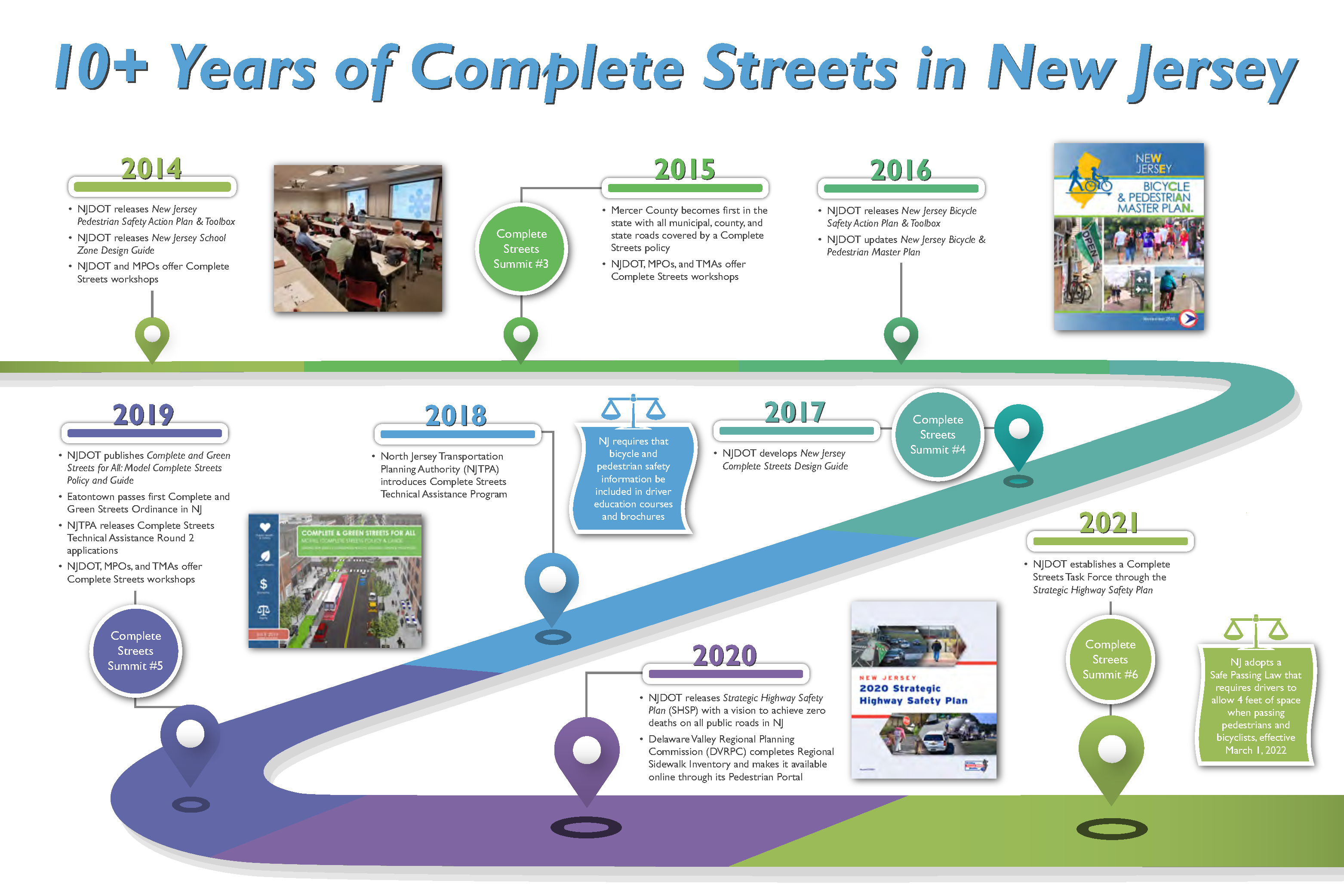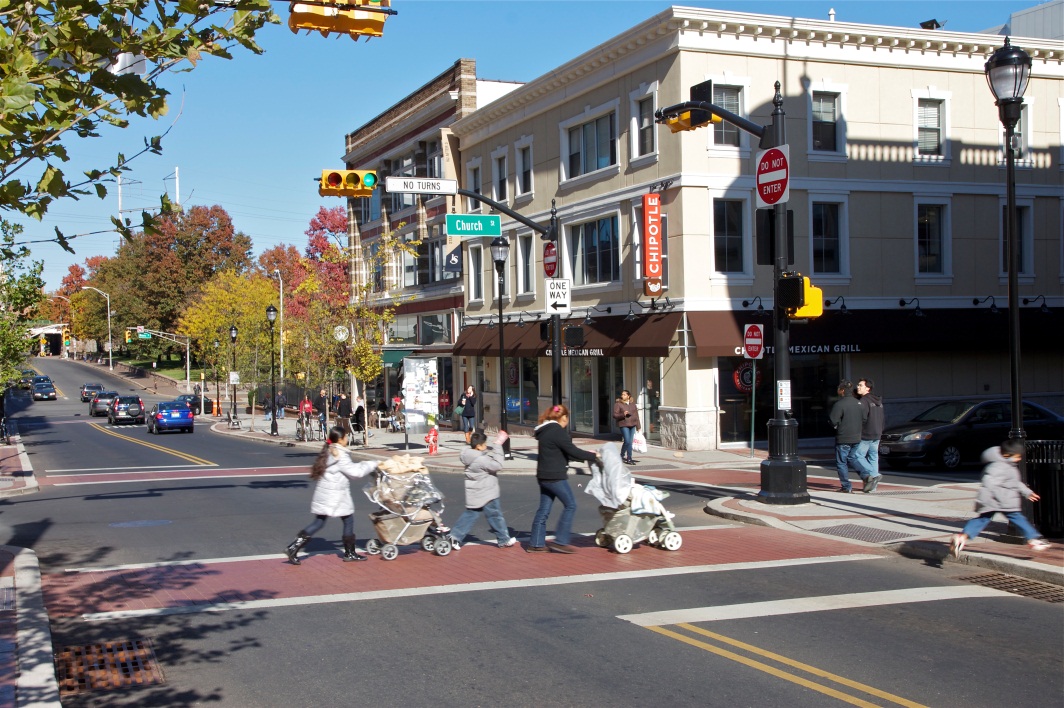
Complete streets are designed and operated to enable safe access for all users – pedestrians, bicyclists, motorists and transit riders of all ages and abilities. Instituting a Complete Streets policy ensures that agencies routinely design and operate the entire right of way to enable safe access for all users. New Jersey has become a national leader in the Complete Streets movement, being among the first states in the US to adopt a Complete Streets policy.

Head on over to our Complete Streets Reports webpage to explore Complete Streets case studies in New Jersey! These reports explore the history of the individual Complete Streets policies, including how the policy was developed, promoted, and implemented. Success and challenges are highlighted for the benefit of other communities looking to implement Complete Streets. Additionally, each report includes a number of next steps to provide readers with insight into the policy’s future. The reports serve as a valuable tool for engineers, planners, elected officials, and advocates who want to move forward with Complete Streets in their communities.
![]()
There are several organizations and resources in New Jersey that can help with developing and implementing local Complete Streets policies, including:
You can also watch our various videos on complete streets topics!

This guide is a one-stop resource for New Jersey municipalities, counties, agencies, organizations, and advocates with an interest in implementing Complete Streets in their communities. The elements of this Model Complete Streets Policy sharpen the focus on implementing comprehensive Complete Streets policies, incorporating Green Streets and green stormwater infrastructure into Complete Streets projects and prioritizing health, equity and fairness in transportation expenditures and project selection. Complete & Green Streets for All was developed in collaboration with a wide range of government and nonprofit partners including Tri-State Transportation Campaign, the Bloustein School of Planning and Public Policy of Rutgers University, American Heart Association-NJ Chapter, New Jersey Future, AARP-NJ, Sustainable Jersey, regional Transportation Management Associations, Bicycle Coalition of Greater Philadelphia, and many other stakeholder organizations.